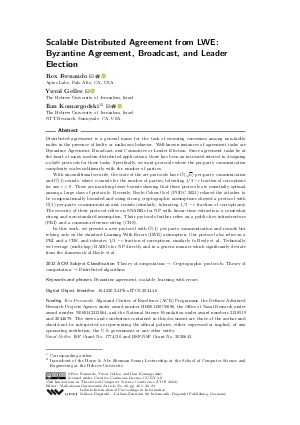LIPIcs.ITCS.2024.46.pdf
- Filesize: 0.9 MB
- 23 pages

 Creative Commons Attribution 4.0 International license
Creative Commons Attribution 4.0 International license





































Feedback for Dagstuhl Publishing